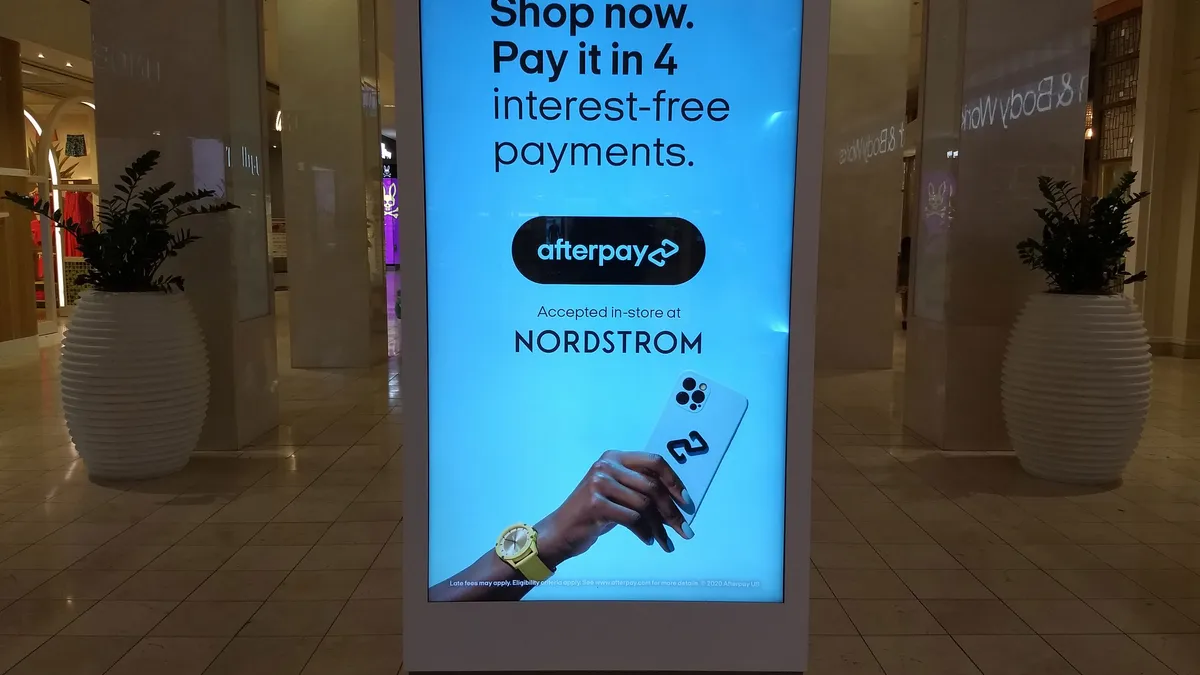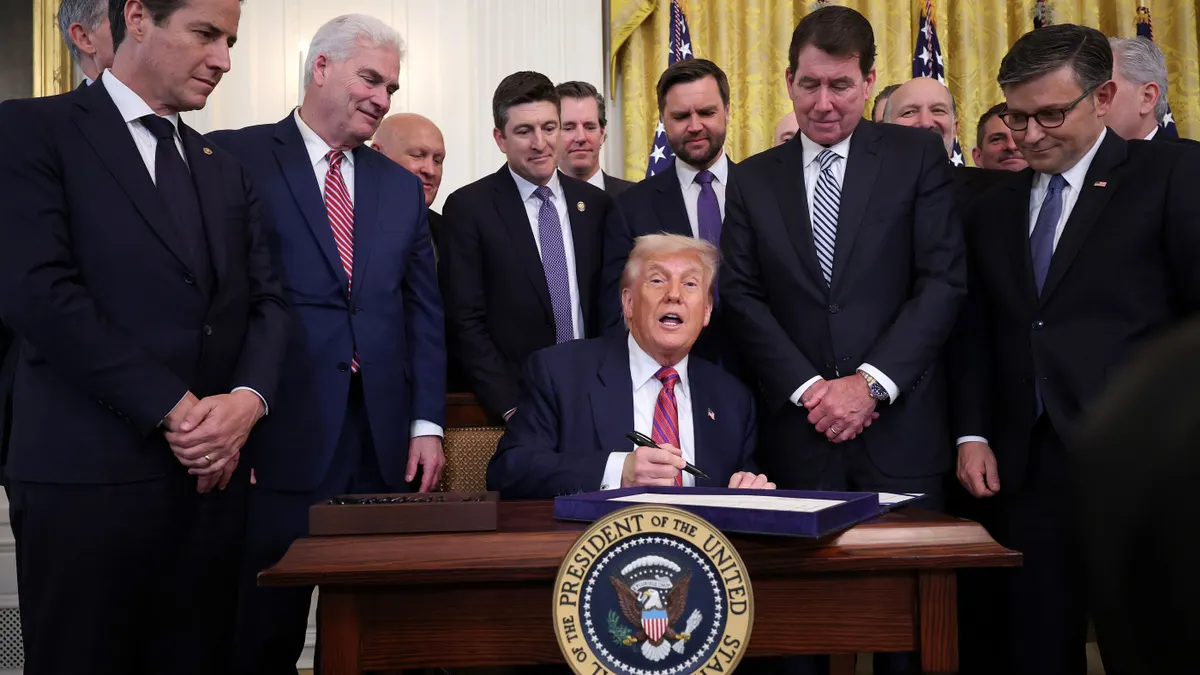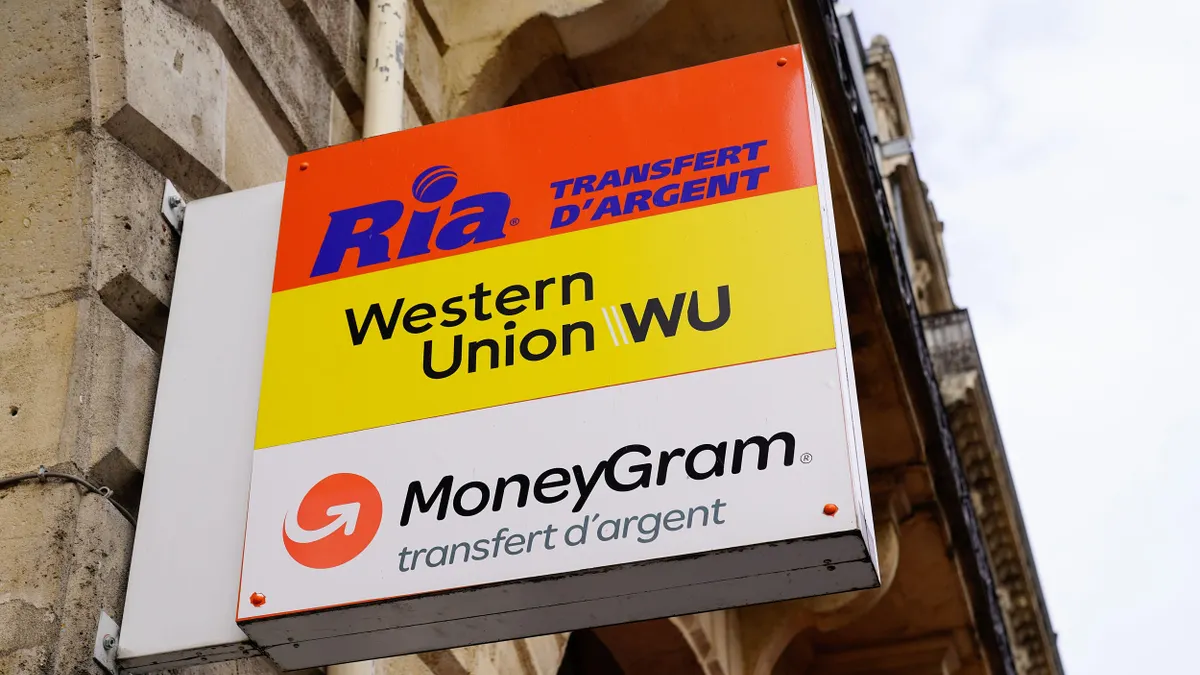Editor’s note: This story is developing and will be updated.
The Consumer Financial Protection Bureau sued Early Warning Services, and three of its bank owners, over fraud perpetrated on the Zelle payments service Friday.
The federal agency said that the companies behind Zelle rushed it to market because they were desperate to compete with emerging digital payments rivals like Block’s Cash App and PayPal’s Venmo services. Customers of the three banks have lost $870 million over Zelle’s seven-year existence, the CFPB alleged in the lawsuit it filed.
EWS and the banks let fraud “fester” on Zelle while “Americans have lost hundreds of millions of dollars to fraud tied to payment network’s shoddy safeguards,” the CFPB said in a Friday press release. The three banks that were sued include Bank of America, JPMorgan Chase and Wells Fargo.
“The nation’s largest banks felt threatened by competing payment apps, so they rushed to put out Zelle,” CFPB Director Rohit Chopra said in the release. “By their failing to put in place proper safeguards, Zelle became a gold mine for fraudsters, while often leaving victims to fend for themselves.”
EWS immediately pushed back against the CFPB in a Friday statement, saying it was prepared to defend itself against the “meritless lawsuit.” “The CFPB’s attacks on Zelle are legally and factually flawed,” the company said.
EWS also contended that it has been effective in its efforts to fight fraud and reimburse consumers where appropriate, suggesting the agency’s lawsuit will have negative consequences.
“The CFPB’s misguided attacks will embolden criminals, cost consumers more in fees, stifle small businesses and make it harder for thousands of community banks and credit unions to compete,” EWS said in its Friday statement.
In a separate emailed statement, JPMorgan Chase, the biggest U.S. bank, didn’t comment directly on the CFPB’s specific allegations, but countered the agency’s action. “It’s a stunning demonstration of regulation by enforcement, skirting the required rulemaking process,” the bank said.
A spokesperson for BofA declined to comment, defering to the EWS statement, and a spokesperson for Wells Fargo also declined to comment, in separate statements to Banking Dive.
Scottsdale, Arizona-based Early Warning Services, founded in 2017, is also owned by four other banks not named in the lawsuit. They include Capital One, PNC Bank, Truist and U.S. Bank.
Nonetheless, U.S. Bank weighed in to defend Zelle. “More than 99.95 percent of transactions across the Zelle network go through without incident,” the bank argued, suggesting that meeting the agency’s expectations might increase its costs. “We strongly disagree with the CFPB’s effort to impose huge new costs on the 2,200 banks and credit unions that offer the free Zelle service to clients.”
Scrutiny centered on Zelle for years
Democrats in Congress have also been pressing Zelle and its operators on the issue of fraud for years. Earlier this year, in May, the Senate Permanant Subcommittee on Investigations, led by Chairman Richard Blumenthal (D-CT), hosted a hearing on the issue.
And in February, Sens. Elizabeth Warren, Sherrod Brown and Jack Reed wrote an open letter to EWS CEO Cameron Fowler asking that the company clarify and simplify its reimbursement policy for users who were victims of fraud and scams. They demanded that EWS provide data by March 13 related to fraud and scams on Zelle from the last five years, including how much money the company has issued in refunds.
EWS came under fire after a March 2022 The New York Times report that scams were flourishing on the Zelle app. The following month, Warren’s office opened an investigation of Zelle, collecting fraud data from big banks and issuing a staff report in October 2022.
In its complaint, filed in the U.S. District Court in Arizona, the CFPB noted that Zelle has become a major U.S. peer-to-peer payment network service, with 2,200 participating banks and credit unions passing funds for 143 million users. In the first half of this year, the system handled 1.7 billion transactions valued at $481 billion, the agency said.
The CFPB said that hundreds of thousands of Zelle customers had filed complaints about Zelle fraud to the banks, but often didn’t get any help, with some being told to contact the fraudsters for recovery of their money. The banks didn’t properly investigate the complaints, and often denied legally required reimbursement for errors and fraud, the agency alleged.
The agency also faulted EWS and the named banks for Zelle’s “shoddy safeguards” and faulty design that allowed fraudsters to thrive on the network. Those shortcomings included Zelle’s limited identity verification that let bad actors easily divert an unwitting consumer’s funds to their own accounts. In addition, a lack of communication and sharing of information about fraudulent transactions among Zelle’s bank owners allowed criminals to repeat their schemes at multiple financial institutions, the CFPB said.
The Zelle trouble happened at both the network level and at the banks, the CFPB alleged in the complaint.
“The CFPB is seeking to stop the alleged unlawful practices, secure redress and penalties, and obtain other relief,” the agency’s release said.
The CFPB aims to hold the companies accountable “for their role in enabling systemic fraud and then playing dumb when consumers were exploited,” Chopra said during a press call with reporters on Friday. Some criminals would obtain one-time passcodes to take over accounts and send funds, while others would steal phones and quickly make unauthorized transfers.
“In case after case, banks routinely denied requests for help, turning a blind eye even when customers provided clear evidence that criminals had taken over their accounts and that the transactions were unauthorized,” Chopra said during the call.
“These banks broke the law by running a payment system that made fraud easy and then refusing to help the victims,” he added.
Zelle backers label CFPB lawsuit a political move
EWS countered the allegations partly by calling out the CFPB’s fraud losses figure as being inaccurate, saying that some of the consumer losses included were later disproved. The CFPB figure “is calculated using customers’ reported fraud claims, but not every reported fraud claim is actual payments fraud,” EWS said.
In its response to the CFPB lawsuit, Early Warning Services also suggested the lawsuit “appears to be driven by political factors unrelated to Zelle.” The company didn’t elaborate, but it may be alluding to the waning days of the Biden administration before a Trump administration takes office.
JPMorgan Chase provided a similar comment: “As a last ditch effort in pursuit of their political agenda, the CFPB is now overreaching its authority by making banks accountable for criminals, even including romance scammers,” the bank said by email.
Still, consumer advocates hailed the federal agency’s action. The National Consumer Law Center called the lawsuit an important step in holding Zelle’s operators accountable. “The CFPB is standing up for people who weren’t able to get the big banks to take their claims of fraud seriously and return their hard-earned money,” NCLC Senior Attorney Carla Sanchez-Adams said in a statement
In a follow-up interview, Sanchez-Adams explained that the CFPB lawsuit’s details pulls back the curtain a bit on how extensive the electronic payments problem really is, specifically regarding how many accounts have been affected and the extent of the service providers’ fraud prevention efforts.
Zelle isn’t the only company that her organization has been hearing consumer complaints about, she said, without elaborating. "Zelle is not the only peer-to-peer payment platform we've been hearing about this from, and I think more needs to be done to address this problem,” she said.
She also noted that the Electronics Fund Transfer Act, along with other laws, give consumers rights beyond having unauthorized transfers reimbursed. In certain cases, service providers may also be required to undertake investigations regarding complaints with the outcomes disclosed to the customers who complained.
With respect to whether the agency would continue to pursue the case even after the Trump administration takes office, Sanchez-Adams said she suspected it would.
"I don't know what [the Trump administration’s] priorities are going to be, but from the previous administration, when Obama transferred power to the first Trump administration, the enforcement actions continued, it wasn't like they were just dropped,” she said, noting that there state attorneys general and private attorneys have also been pursuing similar claims.
“If the CFPB does not continue to pursue this, it's not a foregone conclusion that other (government) administrative agencies won't,” she said.
Caitlin Mullen, Patrick Cooley and Gabby Saulsbery contributed to this story.




















